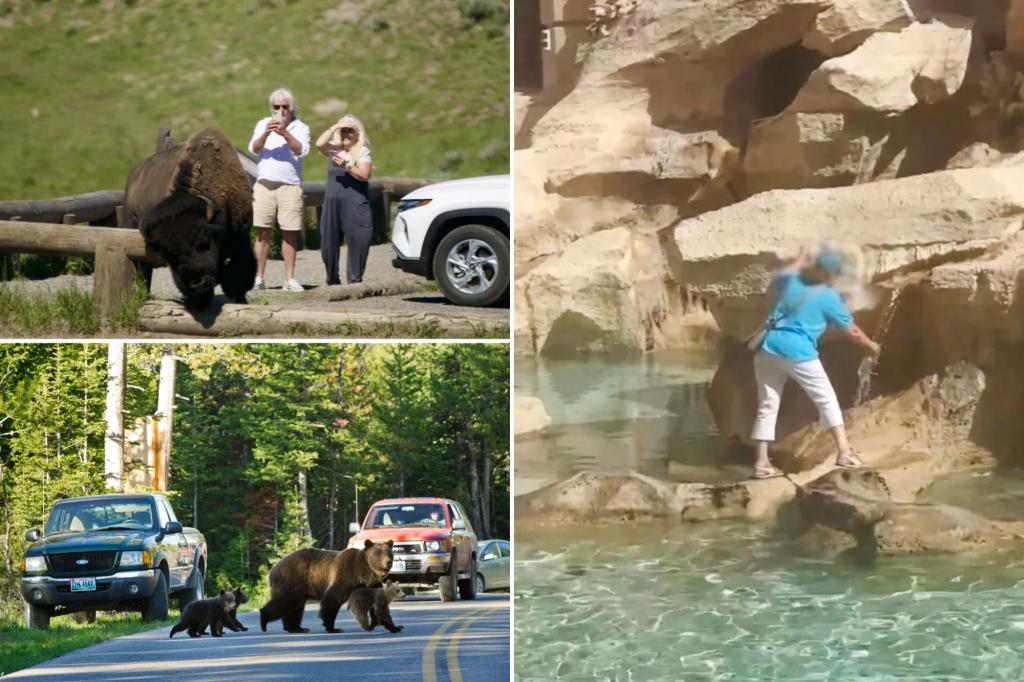In 2023, Webster added 630 words to its dictionary, including the term “touron” to describe moronic tourists who have become a common occurrence in the digital age. From Yellowstone to Bali, tourists engage in reckless behavior that often leads to scorn and outrage. Tourists have been behaving foolishly for decades, with even the prince of Wales climbing the pyramids of Egypt in the 1930s. However, in today’s world, such actions can lead to legal consequences, unlike in the past.
Yellowstone National Park, with its 4.5 million annual visitors, has seen its fair share of irresponsible tourists. Recent incidents include visitors sprinting after bears, kicking bison, and getting dangerously close to wildlife. Yellowstone guide Bo Welden emphasizes the importance of maintaining a safe distance from animals and following park rules. Ignoring these guidelines can lead to injuries, such as severe burns from hydrothermal features or even death from acidic pools.
In Italy, which welcomed 60 million tourists in 2023, disrespectful behavior towards historic sites has been an ongoing issue. Vandalism at landmarks such as the Colosseum and the Trevi Fountain has been documented, along with incidents of tourists disrupting the peace and disrespecting local customs. Tour guide Daniele Toniolo suggests taking tours outside peak hours to avoid encountering destructive tourists and encourages visitors to show respect for the country’s heritage.
Bali, known as the “Island of the Gods,” attracts 5.2 million tourists annually, many of whom engage in reckless behavior fueled by alcohol or drugs. The government has issued guidelines to address the growing issue of disrespectful tourists, including reckless driving and public intoxication. Expats in Bali advise tourists to be mindful of local customs, such as wearing appropriate clothing in temples and avoiding drugs. Failure to comply with these rules can lead to severe consequences, such as deportation or even the death penalty for drug-related offenses.
Responsible tourism is essential to preserving the natural and cultural heritage of popular destinations worldwide. Educating tourists about local customs and rules, such as maintaining a safe distance from wildlife in national parks and respecting historic sites in Italy, can help prevent disrespectful behavior. By following these guidelines and being mindful of the impact of their actions, tourists can contribute to sustainable tourism practices that benefit both the environment and local communities. Ultimately, being a conscientious traveler is crucial in ensuring that future generations can continue to enjoy the world’s wonders without causing harm or destruction.


